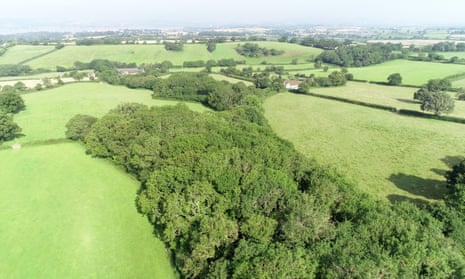Everyone in the UK should be legally entitled to equal access to nature, wildlife campaigners will tell the government.
Communities and NGOS would have the ability to take local authorities to court if they failed to provide healthy green space, under plans set out by more than 60 nature, planning, health and equality organisations. They argue that despite the fact there is strong evidence that accessible, nature-rich spaces boost our physical and mental wellbeing, and reduce mortality, one in three people in England cannot access nature near their home.
Visits to urban parks and other green spaces nearly doubled in the decade before the pandemic, from 1.2bn in 2009-10 to 2.1bn in 2018-19.
The poorest communities fare worse, as they are twice as likely to live in a neighbourhood without nature-rich spaces. The coalition, which includes Greenpeace, Wildlife and Countryside Link, Institute for Public Policy Research, and The Wildlife Trusts, adds that access to nature should be included in any plans to “level up”.
Research by Wildlife and Countryside Link, which on Monday launches a petition to urge the government to put this into law, found that 80% of the British public support a legal right to local nature and 85% say it should be a priority for all new housing developments to include accessible natural spaces.
Dr Richard Benwell, the CEO of Wildlife and Countryside Link, told the Guardian that Michael Gove, secretary of state for levelling up, housing and communities, as good as ignored nature in his white paper.
He said: “There were some references to nature, you had to turn to page 212 or something like that, but people’s environmental rights were not included in the headline announcements.
“It was notable that the six ‘capitals’ included in the paper didn’t include natural capital, which it clearly should have done.”
Campaigners added that many natural spaces are under threat of development, with 11% of urban green space lost in the past 15 years.
Local authorities could improve access to nature by having better transport links to green spaces, improving substandard and neglected patches of natural land, and creating new parks. Campaigners add that improving the quality of local natural spaces is also vital to help meet government targets to protect 30% of land for nature by 2030 and halt the decline in species by 2030.
Craig Bennett, the chief executive of The Wildlife Trusts, said: “Having access to wild places and wildlife shouldn’t be a privilege, but a part of everyday life. We know how much people treasure time spent in nature near where they live, but for many communities this simply isn’t possible. The most deprived areas have nine times less green space than the wealthiest – and poorer areas are where people’s health is the worst.
“Our towns and cities have a huge role to play in nature’s recovery. We need to create and join up habitats, enabling species to recover and benefiting people too. It is critical that nature is at the heart of all planning and development, for wildlife, communities, and climate.”
TV stars including Deborah Meaden from Dragons’ Den and the Springwatch presenter Gillian Burke have backed the bid.
Meaden said: “It’s increasingly clear that there are huge inequalities in the amount of green spaces and access to nature that people can enjoy close to home. I’ve always felt passionately that having nature close to the places where people live, work and visit is critical for our mental and physical health.
“Despite 80% of Brits wanting a ‘legal right to local nature’, it is not yet set out in law, which means that building developments do not have to take this into account. This needs to change.”
